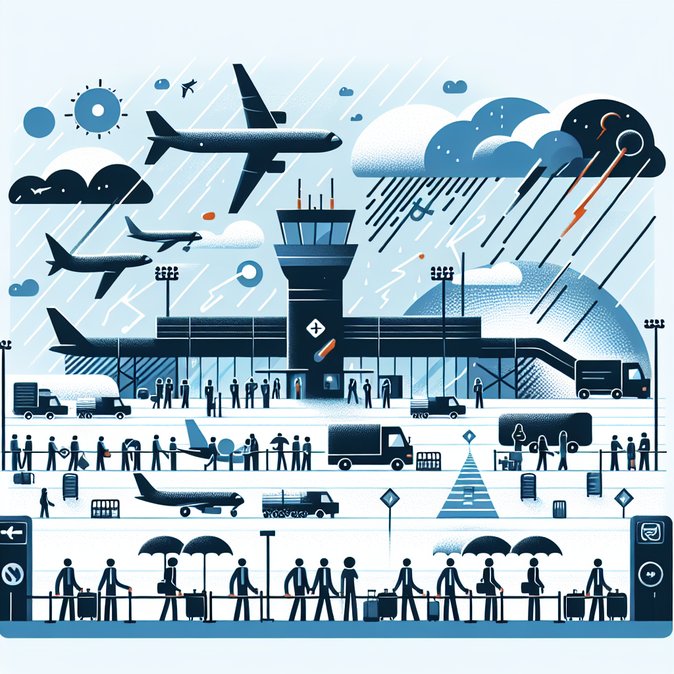
Travellers arriving at German airports on 26 October faced another chaotic weekend as operational disruptions rippled across the network. Industry portal *Travel & Tour World* logged more than 7 outright cancellations and in excess of 400 delays affecting Berlin-Brandenburg (BER), Düsseldorf, Frankfurt, Munich and Stuttgart. Flag-carrier Lufthansa was hardest hit, but KLM, easyJet and Eurowings also suffered schedule knock-ons.
Airport sources blamed a cocktail of factors: lingering staff shortages in ground handling, rollout glitches with the EU’s new Entry/Exit System (EES) that require fingerprint capture for some third-country passengers and unseasonably dense morning fog in the Rhine-Main region. Frankfurt reported average departure delays of 53 minutes, pushing minimum legal rest periods for flight crews to the limit; several rotations were therefore cancelled outright. BER saw 46 delayed departures, mainly short-haul, as airlines struggled to reposition aircraft.
For corporates the timing is painful. The Sunday coincided with the change to wintertime and the start of the 2025/26 winter schedules, when carriers typically trim slack capacity. Travel managers reported missed onward connections to North America and Asia and warned that Monday-morning meeting itineraries may need re-arranging. Airlines offered fee-free rebooking, but compensation claims under EU261 will depend on whether weather or staffing is deemed the primary cause.
Looking ahead, mobility teams should build greater buffer time into itineraries during the EES bedding-in period and consider rail alternatives for domestic legs where feasible. Frankfurt and Munich both said they expect normal operations to resume by Tuesday, but unions have already hinted at further wage-related actions in November that could extend the pattern of weekend disruption.
Airport sources blamed a cocktail of factors: lingering staff shortages in ground handling, rollout glitches with the EU’s new Entry/Exit System (EES) that require fingerprint capture for some third-country passengers and unseasonably dense morning fog in the Rhine-Main region. Frankfurt reported average departure delays of 53 minutes, pushing minimum legal rest periods for flight crews to the limit; several rotations were therefore cancelled outright. BER saw 46 delayed departures, mainly short-haul, as airlines struggled to reposition aircraft.
For corporates the timing is painful. The Sunday coincided with the change to wintertime and the start of the 2025/26 winter schedules, when carriers typically trim slack capacity. Travel managers reported missed onward connections to North America and Asia and warned that Monday-morning meeting itineraries may need re-arranging. Airlines offered fee-free rebooking, but compensation claims under EU261 will depend on whether weather or staffing is deemed the primary cause.
Looking ahead, mobility teams should build greater buffer time into itineraries during the EES bedding-in period and consider rail alternatives for domestic legs where feasible. Frankfurt and Munich both said they expect normal operations to resume by Tuesday, but unions have already hinted at further wage-related actions in November that could extend the pattern of weekend disruption.









